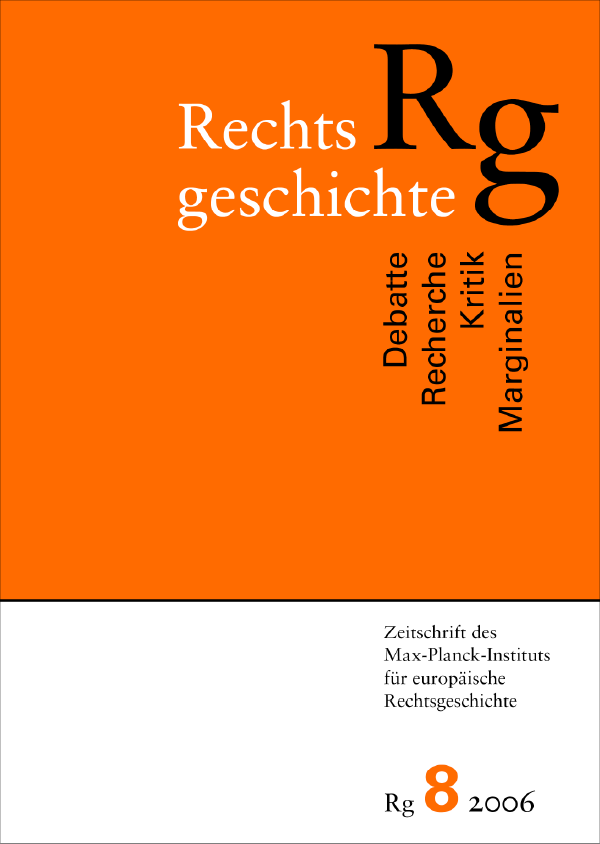Rechtsmutation
Zu Genese und Evolution des Rechts im transnationalen Raum
DOI:
https://doi.org/10.12946/rg08/014-032Abstract
In order to cope with transnational law, we have to abandon hierarchical legal models which, up to the present, have dominated western legal discourse. In the emergence of a new world society, law is undergoing a mutation. This mutation is here understood as a new form of interaction with legal texts. While law has been interpreted until now with regard to auctoritas, i.e. to an external reference (e. g. God, the King, the Pope, the Legislator), this mode of interaction with the legal text can no longer grasp new normative phenomena which in the recent literature have been subsumed under the concept of transnational law. The authors take inspiration from the Jewish model of interpretation of legal texts – as an example of an alternative and more adequate approach to global legal phenomena – and try to elaborate this argument on the basis of European private law.
Downloads
Veröffentlicht
Zitationsvorschlag
Ausgabe
Rubrik
Lizenz
Copyright (c) 2006 Autor/in

Dieses Werk steht unter einer Creative Commons Namensnennung - Nicht-kommerziell - Keine Bearbeitung 3.0 International -Lizenz.





